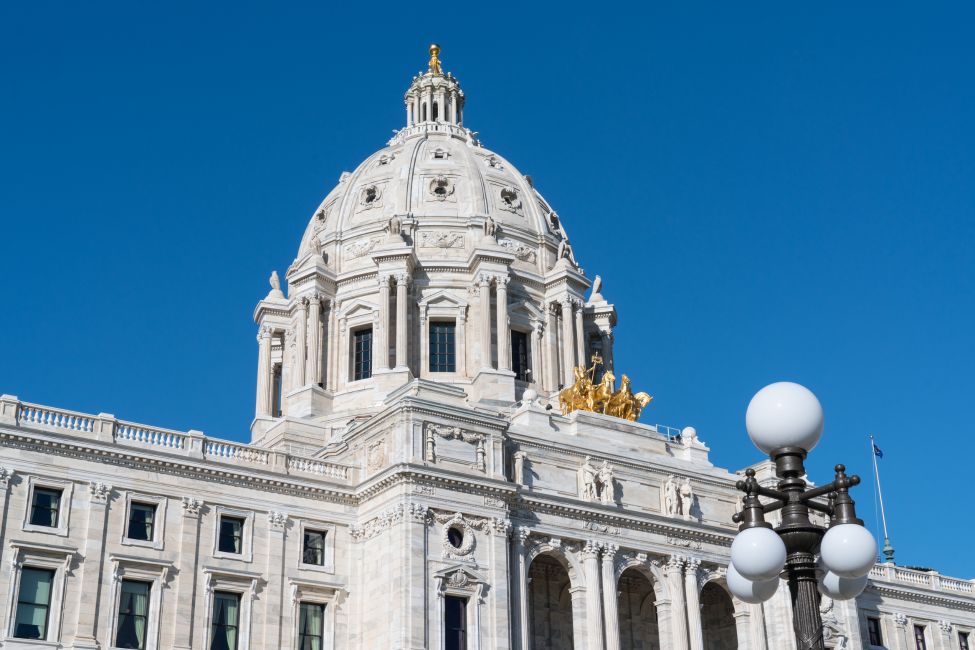
- Details
- By Native News Online Staff
While Indigenous People’s Day has been celebrated in Minnesota via proclamation for many years, state lawmakers passed HF 211 in February, following years of advocacy by the Minnesota House Native American Legislative Caucus and members of the eleven tribal nations in Minnesota.
“We need to celebrate Native peoples’ identity, our culture, our strength,” Red Lake Tribal Secretary Samuel Strong said at a public hearing in February. “We need to celebrate who we are and teach those around us how to honor us, to understand our history, and most importantly, how we can move forward past these traumas and how we can start to heal these communities that would be harmed so much.”
The move is the latest in the state’s efforts to require the education of non-natives on Native American issues, both historical and contemporary.
October 2023 marks the 10-year anniversary of the Tribal-State Relations Training program in Minnesota. The program educates Minnesota state employees about American Indian tribal governments, histories, cultures and traditions. In 2019, the state held the first “Sovereignty Day,” during which eleven representatives from Minnesota’s 11 federally recognized Tribes spoke in front of state legislators for the first time ever.
“As we serve, it’s not lost on us that Minnesota sits on 100% ceded treaty territories, which means it’s our obligation to the next generations to tell the whole truth about the generations before us,” said members of the Native American Legislative Caucus (NALC). “Indigenous People are a strong, resilient, and very active part of Minnesota’s history, its present, and its future. Honoring our traditions, culture, and community is our path to healing and reconciliation.”
This year, Indigenous Peoples’ Day will be observed on Monday, October 9, and on the second Monday of October in future years. In addition to devoting at least one hour of the program to the day’s significance, school districts may provide professional development to teachers and staff or instruction to students on the following topics:
- The history of treaties between the United States and Indigenous peoples
- The history of federal boarding schools for Indigenous children
- Indigenous languages
- Indigenous traditional medicines and cultural or spiritual practices
- The sovereignty of Tribal nations
- The contributions of Indigenous people to American culture, literature, and society
- Current issues affecting Indigenous communities.
More Stories Like This
Native News Weekly (August 25, 2024): D.C. BriefsUS Presidents in Their Own Words Concerning American Indians
Native News Weekly (December 21, 2025): D.C. Briefs
Native America Celebrates the Winter Solstice
Tlingit & Haida Launch New Foundation to Support Education, Wellness
Help us defend tribal sovereignty.
At Native News Online, our mission is rooted in telling the stories that strengthen sovereignty and uplift Indigenous voices — not just at year’s end, but every single day.
Because of your generosity last year, we were able to keep our reporters on the ground in tribal communities, at national gatherings and in the halls of Congress — covering the issues that matter most to Indian Country: sovereignty, culture, education, health and economic opportunity.
That support sustained us through a tough year in 2025. Now, as we look to the year ahead, we need your help right now to ensure warrior journalism remains strong — reporting that defends tribal sovereignty, amplifies Native truth, and holds power accountable.
 The stakes couldn't be higher. Your support keeps Native voices heard, Native stories told and Native sovereignty defended.
The stakes couldn't be higher. Your support keeps Native voices heard, Native stories told and Native sovereignty defended.
Stand with Warrior Journalism today.
Levi Rickert (Potawatomi), Editor & Publisher

